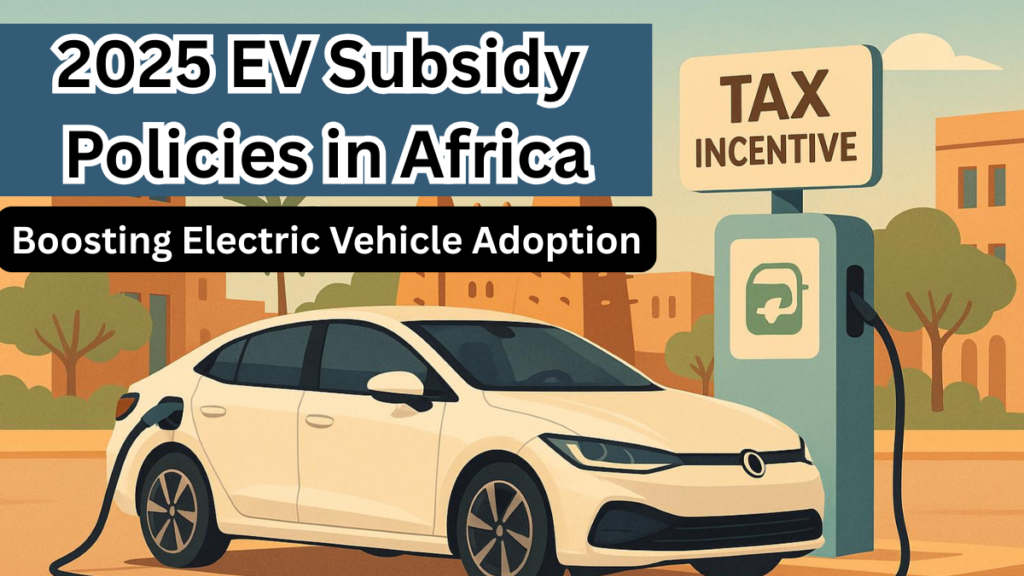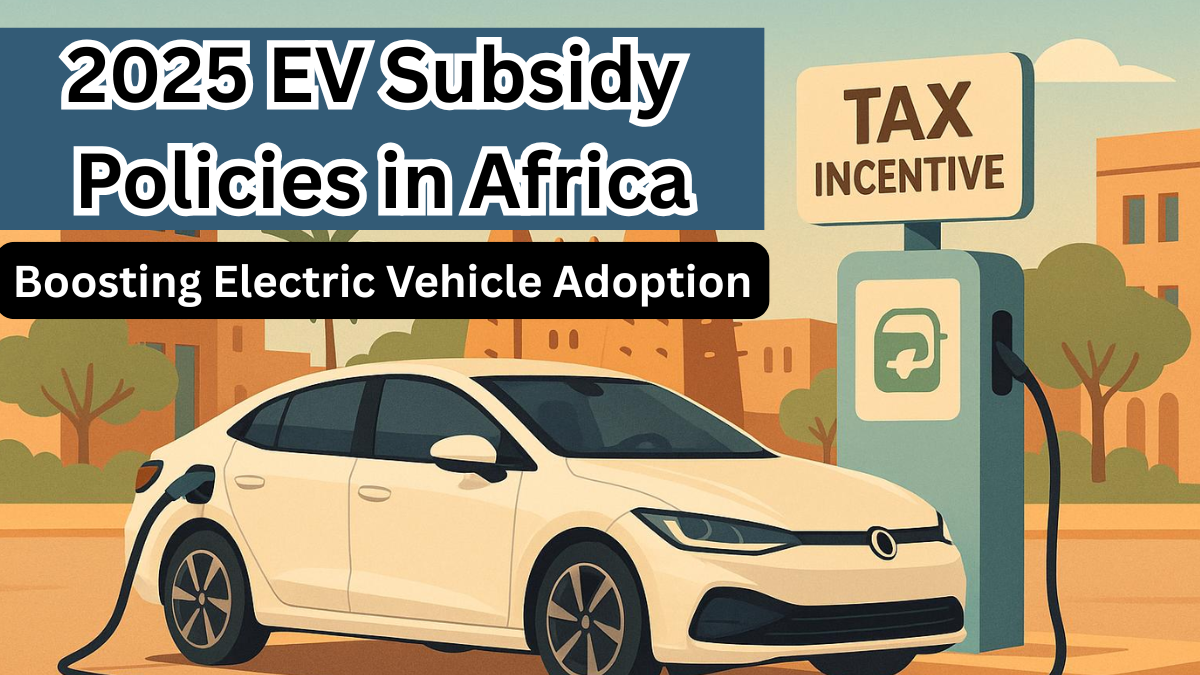The electric vehicle (EV) revolution is quietly gaining speed across Africa. With rising fuel costs, worsening air pollution, and a growing focus on climate change, governments are stepping up to back the shift toward cleaner transport. The 2025 EV subsidy policies in Africa are not just promises—they’re real, tangible tools designed to transform urban mobility.
Let’s explore how these subsidies are helping make electric vehicles more accessible, affordable, and widespread across the continent.

Why Africa Needs Strong EV Policies Now
Despite challenges like charging infrastructure and high EV prices, African nations recognize the urgent need to cut carbon emissions and reduce dependence on imported fuel. That’s where the latest African EV policies and government subsidy 2025 initiatives come in.
Here’s what’s driving the shift:
-
Urban pollution is becoming unmanageable in key cities
-
EV technology is getting cheaper, thanks to global innovations
-
Youth and eco-conscious buyers are demanding greener options
-
Government partnerships with private players are on the rise
Key Highlights of 2025 EV Subsidy Plans in Africa
The new government subsidy 2025 programs vary by country, but the goals are aligned: cut costs, accelerate adoption, and support local manufacturing.
| Country | Subsidy Highlights | EV Types Covered |
|---|---|---|
| South Africa | Up to 35% reduction in import taxes for EVs and locally-made EV incentives | Cars, buses, two-wheelers |
| Kenya | VAT and excise duty exemptions for EVs; 10% government fleet transition mandate | Cars, motorcycles, vans |
| Nigeria | Zero customs duty on EV components; Naira-backed EV manufacturing incentives | Buses, ride-hailing EVs |
| Rwanda | Import tax relief, free EV registration for 2 years | Electric motorcycles, taxis |
| Morocco | Green transport grant for EV buyers (up to $3,000 equivalent) | Cars, buses, commercial EVs |
These bold steps are proof that African EV policies are no longer on the drawing board—they’re rolling out now.
How These Subsidies Help Consumers and the Economy
The 2025 EV subsidy policies in Africa aren’t just about helping people buy electric cars—they offer broader societal and economic benefits:
For Consumers
-
Lower upfront EV costs through direct discounts or tax relief
-
Free registration or toll fee exemptions in select regions
-
More charging stations via public-private collaborations
For the Economy
-
Growth in green tech jobs and local EV assembly
-
Reduced fossil fuel import bills
-
Boost to entrepreneurship (especially for electric two- and three-wheelers)
Challenges Ahead (And What’s Being Done)
While subsidies are a strong start, Africa still faces hurdles:
-
Charging infrastructure gaps in rural and semi-urban zones
-
High initial EV prices even after subsidies
-
Limited awareness among consumers
To address this, governments are investing in:
-
National EV roadmaps
-
Public education campaigns
-
Incentives for local EV manufacturing
The Road Ahead: Can Africa Lead the EV Charge?
The push toward electric mobility in Africa is gaining momentum, and 2025 could be a turning point. Thanks to proactive African EV policies and timely government subsidy 2025 programs, the continent is poised to leapfrog into a cleaner, smarter transport future.
FAQs
Q1: What is the average subsidy offered on electric vehicles in Africa in 2025?
A: It varies by country, but most offer tax exemptions, import duty relief, or direct cash incentives ranging from 10%–35% of the vehicle cost.
Q2: Are two-wheelers and three-wheelers included in the EV subsidy policies?
A: Yes, especially in countries like Rwanda, Kenya, and Nigeria, where electric motorcycles and tuk-tuks are widely used for commuting and deliveries.
Q3: How can I apply for the EV subsidy in my country?
A: Visit your local Ministry of Transport or energy agency’s website. Most countries now offer online applications or guidelines for accessing government subsidy 2025 incentives.
Q4: Will African countries expand these EV subsidies beyond 2025?
A: Several governments are already planning to extend and revise African EV policies in alignment with their national climate goals for 2030 and beyond.
Click here to learn more
Sachin is a dedicated writer specializing in education, career, and recruitment topics, delivering clear and actionable insights to empower readers.
